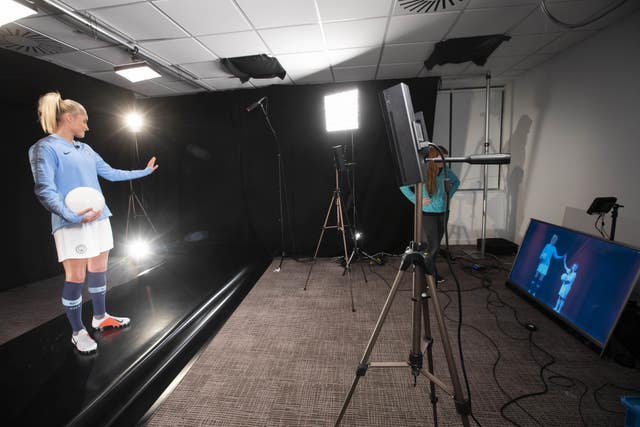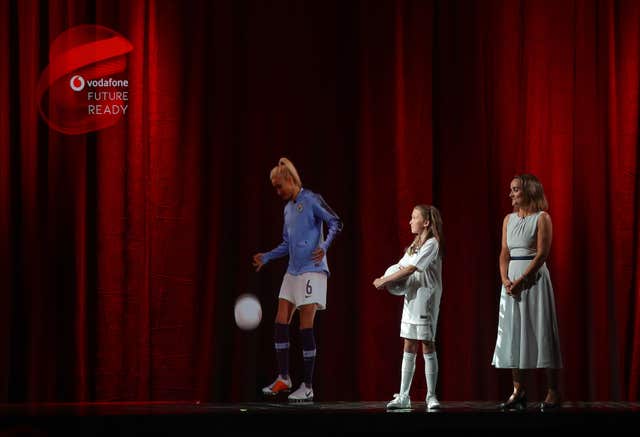Vodafone shows how 5G could be used to make live holographic calls
The network demonstrated a live hologram call with England Women’s football captain Steph Houghton.

Vodafone has given a live demonstration of how 5G could be used to make holographic calls in the future.
Manchester City and England Women’s football captain Steph Houghton participated in a live test using the technology, which is set to improve mobile connection speeds in the coming years.
Coupled with Microsoft’s HoloLens headset, a young fan was able to communicate with the footballer in front of a live audience in Newbury, despite being physically 190 miles apart.

As well as improving connection speeds for smartphones, 5G is also being heralded as a potential way to carry out remote robotic surgery, and for 4K gaming on the move.
The British conglomerate has already confirmed that Birmingham, Bristol, Cardiff, Glasgow, Liverpool, London and Manchester will be used as the company’s testing ground for 5G next month, and will follow with Cornwall and the Lake District in 2019.

No official date has been set for 5G to be made available publicly, but 5G-ready smartphones could start to appear on the market as soon as 2019.
The Department for Digital, Culture, Media and Sport recently announced that the West Midlands had won a bid to be the UK’s first large-scale testbed for 5G, providing Birmingham, Coventry and Wolverhampton with a £50 million fund.
Initial plans could see connected ambulances deployed across the region, providing paramedic crews with access to specialist advice using video conferencing and live streaming of patient data to the hospital en route.
Other ambitions include carrying out hospital outpatient appointments and emergency consultations remotely via video-link with a more stable connection than existing networks, which could enable patients to play back their appointment at a later date.





